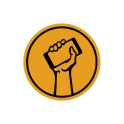Proposed ban of gang patches sets a dangerous precedent

MEDIA RELEASE
07 March 2024
FOR IMMEDIATE RELEASE
Proposed ban of gang patches sets a dangerous precedent
The Government has finally released legislation that will prohibit gangs from wearing patches in public. While this policy seeks to address an area of great concern for many Kiwis, this is not the way to address gang violence; it sets a terrible precedent that further erodes New Zealanders' speech rights, says Jonathan Ayling, Chief Executive of the Free Speech Union.
"We already have laws in place for crime and violence. The Government should focus on these, not banning what criminals wear.
"Equally, where New Zealanders feel actively threatened, intimidated, and harassed, the law already exists and should be enforced to protect those going about their daily lives. If we focus on banning certain forms of expression, where do we draw the line?
"Removing gang patches doesn’t mean gangs, or the crime and harm they cause, cease to exist. Suppressing the symptoms of this issue may even make it harder to address the cause itself.
"If the Government is concerned about gang activity, they should focus on exactly that. How these powers are used today sets us on a troubling path for the way they may be manipulated tomorrow."
ENDS








